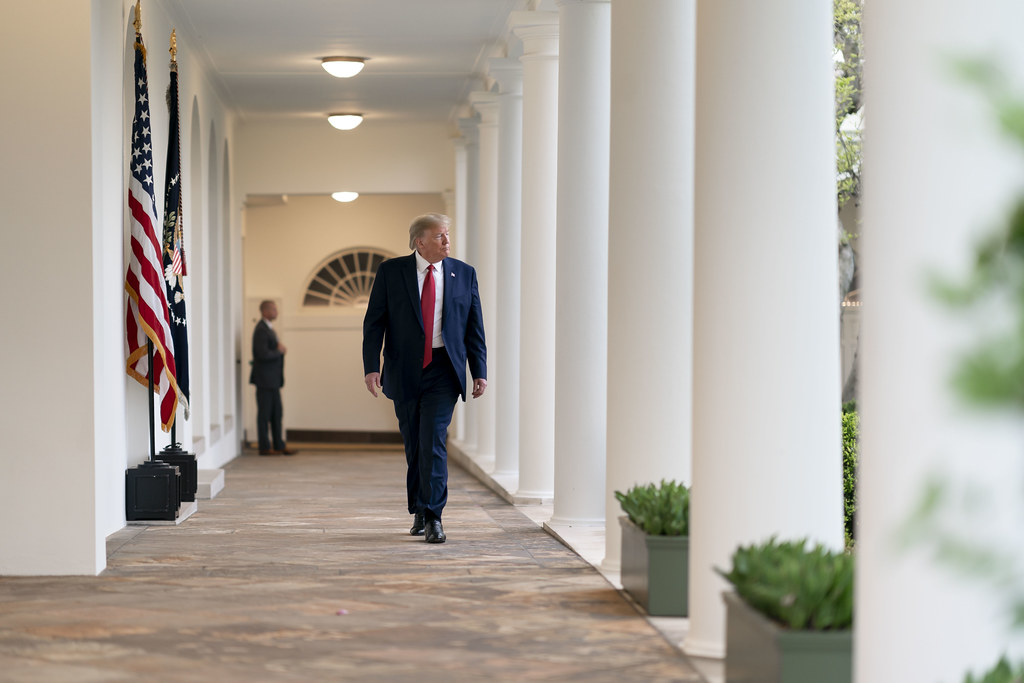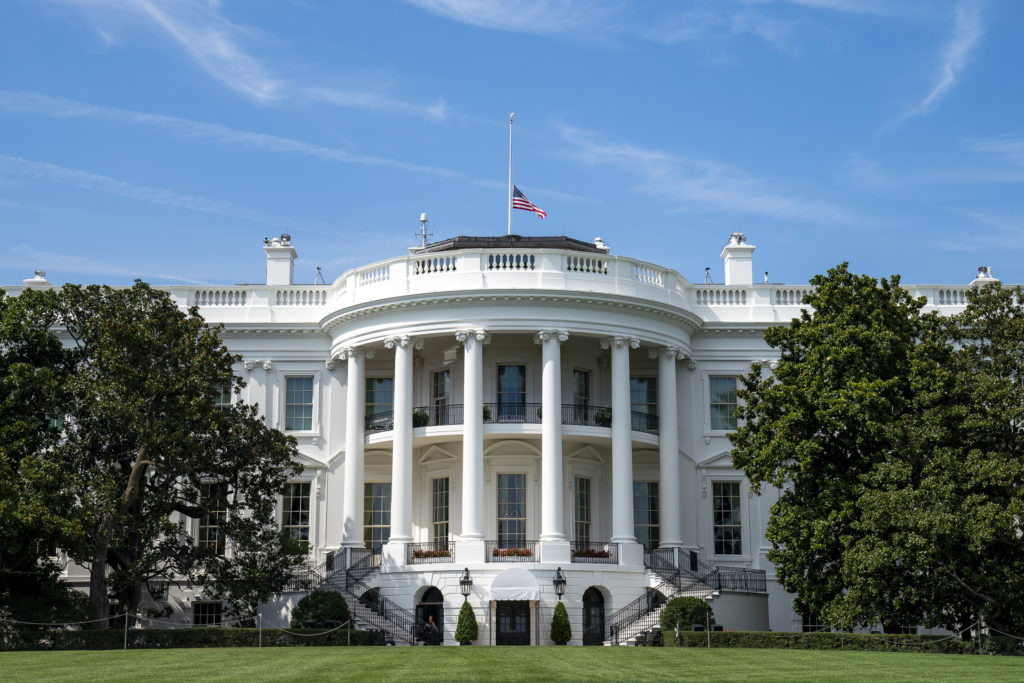Trump Fired the Intelligence Community Inspector General. Congress Must Respond.
Protecting whistleblowers and officials who speak truth to power is the responsibility of every member of Congress.

Published by The Lawfare Institute
in Cooperation With

On Friday, April 3, President Trump removed Michael Atkinson from his role as inspector general of the U.S. intelligence community. It’s no longer a surprise when President Trump removes qualified national security officials for taking positions contrary to his own—but it remains unacceptable. It’s incumbent upon Congress to prevent this from becoming the new normal.
Atkinson was the official who, in September 2019, notified Congress of a whistleblower complaint about the president’s efforts to press Ukraine to interfere in the 2020 presidential election. The inspector general was required by law to notify Congress, but he did so knowing that he was inviting retribution from the president.
After he was fired, Atkinson released a statement announcing that he believes the president dismissed him because Atkinson had faithfully discharged his legal obligations as an independent and impartial inspector general.
Atkinson hasn’t been the only victim. President Trump fired (without cause) Joseph Maguire, acting director of national intelligence and Atkinson’s boss. He dismissed Ambassador to the E.U. Gordon Sondland and removed Lt. Col. Alexander Vindman from his post at the National Security Council—both of whom testified, under subpoena, during Trump’s impeachment trial. He asked for the resignation of Undersecretary of Defense for Policy John Rood, who expressed skepticism about withholding critical military aid from Ukraine.And the White House withdrew the nomination of Elaine McCusker to be the Defense Department’s comptroller because she had raised concerns that withholding aid from Ukraine risked violating the law.
As a result, few career officials remain who were witness to the president’s efforts to withhold aid from Ukraine in exchange for investigations into President Trump’s political rivals, in particular Joe Biden.
But this pattern of retribution began long before President Trump’s call with Ukrainian President Volodymyr Zelensky in July 2019. Most notably, the president fired FBI Director James Comey for overseeing an investigation of Russian political interference during the 2016 presidential election. And Trump later removed Attorney General Jeff Sessions for recusing himself from that same investigation.
Countless others resigned when their commitment to sound national security policy or the faithful execution of the law ran afoul of the White House. Defense Secretary Jim Mattis was marginalized for providing military advice regarding Syria, and Secretary of State Rex Tillerson was fired for disagreeing with the president on issues ranging from North Korea to Russia.
Taken as a whole, this amounts to a sustained campaign against career civil servants, including diplomats, intelligence officers and military officials. Retaliating against these courageous men and women will only serve to further hollow out the workforce and make it harder to enact thoughtful, responsible foreign policy. It also undermines U.S. credibility at a time when American leadership has never been more important.
The president has shown time and time again that the government and its personnel must be loyal to him, not the Constitution. The effect of this is to diminish both U.S. national security and America’s ability to detect government malfeasance.
Protecting whistleblowers and officials who speak truth to power is the responsibility of every member of Congress. It’s not a partisan issue, and as the nation heads into the 2020 presidential election, it’s especially important to ensure that abuses of power by the president come to light.
Congress must respond. First, we must hold hearings to determine whether there have been attempts to silence other whistleblowers in the national security establishment.
Second, we must determine whether any of Atkinson’s efforts to root out fraud, waste and abuse within the intelligence community have been thwarted by his removal. As a long-standing member of the Senate Intelligence Committee, I will look into this.
Third, I will call for a review of inspector general authorities and protections to ensure that inspectors general across the government are able to serve with integrity and independence, no matter the consequences.
And finally, Congress must reestablish strong redlines. We can’t allow a system where government officials of any rank—especially in the national security space—can expect to lose their jobs if they follow the law and uphold their oath to support and defend the Constitution.
Every president expects to establish his own team and for the civil service to implement policies—that is, when those policies are sound and lawful. But Americans also expect that officials at all levels, including the president of the United States, will be motivated by what’s best for the nation and the rule of law.
Now more than ever, the U.S. needs to protect its national security institutions from an administration that is making policy decisions based on personal political benefit.





